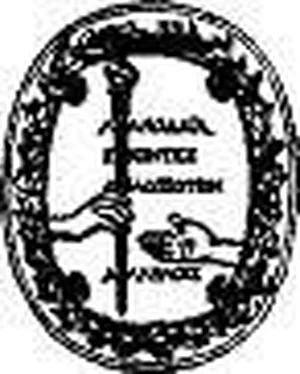Herbert Wells - Tales of Space and Time
Здесь есть возможность читать онлайн «Herbert Wells - Tales of Space and Time» весь текст электронной книги совершенно бесплатно (целиком полную версию без сокращений). В некоторых случаях можно слушать аудио, скачать через торрент в формате fb2 и присутствует краткое содержание. Жанр: Фантастика и фэнтези, на английском языке. Описание произведения, (предисловие) а так же отзывы посетителей доступны на портале библиотеки ЛибКат.
- Название:Tales of Space and Time
- Автор:
- Жанр:
- Год:неизвестен
- ISBN:нет данных
- Рейтинг книги:4 / 5. Голосов: 1
-
Избранное:Добавить в избранное
- Отзывы:
-
Ваша оценка:
- 80
- 1
- 2
- 3
- 4
- 5
Tales of Space and Time: краткое содержание, описание и аннотация
Предлагаем к чтению аннотацию, описание, краткое содержание или предисловие (зависит от того, что написал сам автор книги «Tales of Space and Time»). Если вы не нашли необходимую информацию о книге — напишите в комментариях, мы постараемся отыскать её.
Tales of Space and Time — читать онлайн бесплатно полную книгу (весь текст) целиком
Ниже представлен текст книги, разбитый по страницам. Система сохранения места последней прочитанной страницы, позволяет с удобством читать онлайн бесплатно книгу «Tales of Space and Time», без необходимости каждый раз заново искать на чём Вы остановились. Поставьте закладку, и сможете в любой момент перейти на страницу, на которой закончили чтение.
Интервал:
Закладка:
Thus far these observations had progressed in early November, and then Mr. Cave, feeling that the suspicions of his family about the crystal were allayed, began to take it to and fro with him in order that, as occasion arose in the daytime or night, he might comfort himself with what was fast becoming the most real thing in his existence.
In December Mr. Wace's work in connection with a forthcoming examination became heavy, the sittings were reluctantly suspended for a week, and for ten or eleven days—he is not quite sure which—he saw nothing of Cave. He then grew anxious to resume these investigations, and, the stress of his seasonal labours being abated, he went down to Seven Dials. At the corner he noticed a shutter before a bird fancier's window, and then another at a cobbler's. Mr. Cave's shop was closed.
He rapped and the door was opened by the step-son in black. He at once called Mrs. Cave, who was, Mr. Wace could not but observe, in cheap but ample widow's weeds of the most imposing pattern. Without any very great surprise Mr. Wace learnt that Cave was dead and already buried. She was in tears, and her voice was a little thick. She had just returned from Highgate. Her mind seemed occupied with her own prospects and the honourable details of the obsequies, but Mr. Wace was at last able to learn the particulars of Cave's death. He had been found dead in his shop in the early morning, the day after his last visit to Mr. Wace, and the crystal had been clasped in his stone-cold hands. His face was smiling, said Mrs. Cave, and the velvet cloth from the minerals lay on the floor at his feet. He must have been dead five or six hours when he was found.
This came as a great shock to Wace, and he began to reproach himself bitterly for having neglected the plain symptoms of the old man's ill-health. But his chief thought was of the crystal. He approached that topic in a gingerly manner, because he knew Mrs. Cave's peculiarities. He was dumbfoundered to learn that it was sold.
Mrs. Cave's first impulse, directly Cave's body had been taken upstairs, had been to write to the mad clergyman who had offered five pounds for the crystal, informing him of its recovery; but after a violent hunt in which her daughter joined her, they were convinced of the loss of his address. As they were without the means required to mourn and bury Cave in the elaborate style the dignity of an old Seven Dials inhabitant demands, they had appealed to a friendly fellow-tradesman in Great Portland Street. He had very kindly taken over a portion of the stock at a valuation. The valuation was his own and the crystal egg was included in one of the lots. Mr. Wace, after a few suitable consolatory observations, a little off-handedly proffered perhaps, hurried at once to Great Portland Street. But there he learned that the crystal egg had already been sold to a tall, dark man in grey. And there the material facts in this curious, and to me at least very suggestive, story come abruptly to an end. The Great Portland Street dealer did not know who the tall dark man in grey was, nor had he observed him with sufficient attention to describe him minutely. He did not even know which way this person had gone after leaving the shop. For a time Mr. Wace remained in the shop, trying the dealer's patience with hopeless questions, venting his own exasperation. And at last, realising abruptly that the whole thing had passed out of his hands, had vanished like a vision of the night, he returned to his own rooms, a little astonished to find the notes he had made still tangible and visible upon his untidy table.
His annoyance and disappointment were naturally very great. He made a second call (equally ineffectual) upon the Great Portland Street dealer, and he resorted to advertisements in such periodicals as were likely to come into the hands of a bric-a-brac collector. He also wrote letters to The Daily Chronicle and Nature , but both those periodicals, suspecting a hoax, asked him to reconsider his action before they printed, and he was advised that such a strange story, unfortunately so bare of supporting evidence, might imperil his reputation as an investigator. Moreover, the calls of his proper work were urgent. So that after a month or so, save for an occasional reminder to certain dealers, he had reluctantly to abandon the quest for the crystal egg, and from that day to this it remains undiscovered. Occasionally, however, he tells me, and I can quite believe him, he has bursts of zeal, in which he abandons his more urgent occupation and resumes the search.
Whether or not it will remain lost for ever, with the material and origin of it, are things equally speculative at the present time. If the present purchaser is a collector, one would have expected the enquiries of Mr. Wace to have reached him through the dealers. He has been able to discover Mr. Cave's clergyman and "Oriental"—no other than the Rev. James Parker and the young Prince of Bosso-Kuni in Java. I am obliged to them for certain particulars. The object of the Prince was simply curiosity—and extravagance. He was so eager to buy, because Cave was so oddly reluctant to sell. It is just as possible that the buyer in the second instance was simply a casual purchaser and not a collector at all, and the crystal egg, for all I know, may at the present moment be within a mile of me, decorating a drawing-room or serving as a paper-weight—its remarkable functions all unknown. Indeed, it is partly with the idea of such a possibility that I have thrown this narrative into a form that will give it a chance of being read by the ordinary consumer of fiction.
My own ideas in the matter are practically identical with those of Mr. Wace. I believe the crystal on the mast in Mars and the crystal egg of Mr. Cave's to be in some physical, but at present quite inexplicable, way en rapport , and we both believe further that the terrestrial crystal must have been—possibly at some remote date—sent hither from that planet, in order to give the Martians a near view of our affairs. Possibly the fellows to the crystals in the other masts are also on our globe. No theory of hallucination suffices for the facts.
The Star
It was on the first day of the new year that the announcement was made, almost simultaneously from three observatories, that the motion of the planet Neptune, the outermost of all the planets that wheel about the sun, had become very erratic. Ogilvy had already called attention to a suspected retardation in its velocity in December. Such a piece of news was scarcely calculated to interest a world the greater portion of whose inhabitants were unaware of the existence of the planet Neptune, nor outside the astronomical profession did the subsequent discovery of a faint remote speck of light in the region of the perturbed planet cause any very great excitement. Scientific people, however, found the intelligence remarkable enough, even before it became known that the new body was rapidly growing larger and brighter, that its motion was quite different from the orderly progress of the planets, and that the deflection of Neptune and its satellite was becoming now of an unprecedented kind.
Few people without a training in science can realise the huge isolation of the solar system. The sun with its specks of planets, its dust of planetoids, and its impalpable comets, swims in a vacant immensity that almost defeats the imagination. Beyond the orbit of Neptune there is space, vacant so far as human observation has penetrated, without warmth or light or sound, blank emptiness, for twenty million times a million miles. That is the smallest estimate of the distance to be traversed before the very nearest of the stars is attained. And, saving a few comets more unsubstantial than the thinnest flame, no matter had ever to human knowledge crossed this gulf of space, until early in the twentieth century this strange wanderer appeared. A vast mass of matter it was, bulky, heavy, rushing without warning out of the black mystery of the sky into the radiance of the sun. By the second day it was clearly visible to any decent instrument, as a speck with a barely sensible diameter, in the constellation Leo near Regulus. In a little while an opera glass could attain it.
Читать дальшеИнтервал:
Закладка:
Похожие книги на «Tales of Space and Time»
Представляем Вашему вниманию похожие книги на «Tales of Space and Time» списком для выбора. Мы отобрали схожую по названию и смыслу литературу в надежде предоставить читателям больше вариантов отыскать новые, интересные, ещё непрочитанные произведения.
Обсуждение, отзывы о книге «Tales of Space and Time» и просто собственные мнения читателей. Оставьте ваши комментарии, напишите, что Вы думаете о произведении, его смысле или главных героях. Укажите что конкретно понравилось, а что нет, и почему Вы так считаете.





